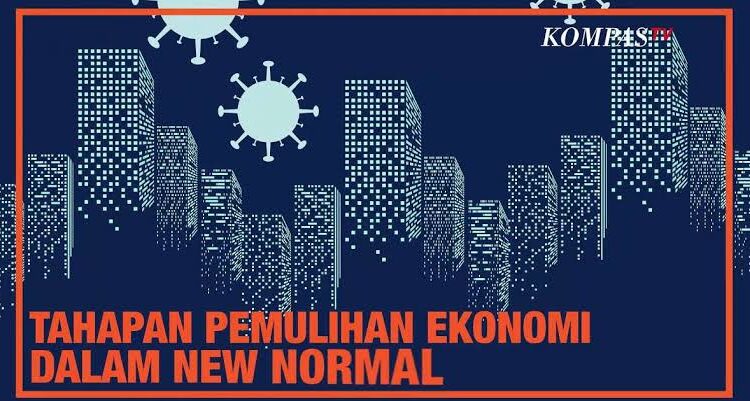Positive Impact of the National Economic Recovery Program
By: Ahmad Bustomi) *
The national economic recovery program (PEN) created by the government is a surefire solution to help the community. They get business capital assistance, interest installment relief, and tax reduction. The community has felt the positive impact of the national economic recovery program and can start their business again.
The corona pandemic hit all sectors, especially the economy. The impact, people are confused because they lost their jobs. The UMKM entrepreneur also suffered a loss because the shop was quiet. Many people choose to buy groceries over secondary and tertiary needs. The virus attack caused a sad economic crisis.
To overcome the corona impact, the government launched a national economic program. The aim is to help entrepreneurs and other communities to survive. In this program, there are several types of assistance, such as working capital credit, reduction in tax value, reduction in lending rates at banks and finance companies , and others.
The community feels the effects of the national economic recovery program. One of them is Sofia Rahayu. Initially he was a souvenir convection businessman, then in the middle of a pandemic, he became a producer of PPE. But unfortunately the price of raw materials has tripled. He was very happy because he got a working capital credit from a state-owned bank that was a distributor of PEN.
Another entrepreneur who gets a working capital credit is Dewi Katmujiwati. The cafe and workshop business were forced to close since the beginning of the pandemic. Now in the era of new habit adaptation, he can open his business again, because he gets a loan of 150 million rupiah, also from a state-owned bank. The interest is also relatively low so that it helps in installments.
SME entrepreneurs do indeed get the attention of the government, because they absorb a lot of labor. Minister of Finance Sri Mulyani stated that all aspects of the business world, especially MSMEs, were given assistance from the government. The total budget of the PEN is 123.46 trillion rupiah, and is expected to be utilized by MSME entrepreneurs.
The satisfaction of these MSME entrepreneurs proves that national economic program projects do not only consume the APBN budget. But it was really used to improve the financial condition of the Indonesian people. Why were the first entrepreneurs helped? Of course because they are running the wheels of the Indonesian economy.
Other communities also benefit from the national economic recovery program. They can get tax breaks, so the burden that must be taken is not too large. The government is aware that economic conditions in Indonesia are down. Therefore, people pay a nominal nominal tax.
The absorption of the budget for the national economic recovery program is not yet 100%. But this happened because there were millions of people who were helped by PEN. So you just have to wait your turn and feel the benefits of the program. If you can not get credit with soft interest, apply for installment interest relief at the BUMN Bank where you take credit.
The public also must not forget the president’s message to use this assistance as business capital. Don’t even buy a cellphone or buy other consumer goods. Respect the trust of the government. Reopen businesses that have suspended animation or add merchandise variants, so that more and more buyers are interested in shopping.
If there is a light interest on installments also use it well. Do not even run away and are lazy to pay. Because as a businessman and a good citizen, you must be responsible. After all, the interest has been discounted up to 50%, and the loan period is extended. So the installments are not too large.
The benefits of the national economic recovery program have been felt by the community, especially entrepreneurs. They get credit assistance for venture capital, so that the business can run again. We are also obliged to assist the PEN program in an orderly manner in paying installments, taxes, and using capital assistance to do business.
) * The author is the Indonesian Strategic Information Studies Institute (LSISI)
